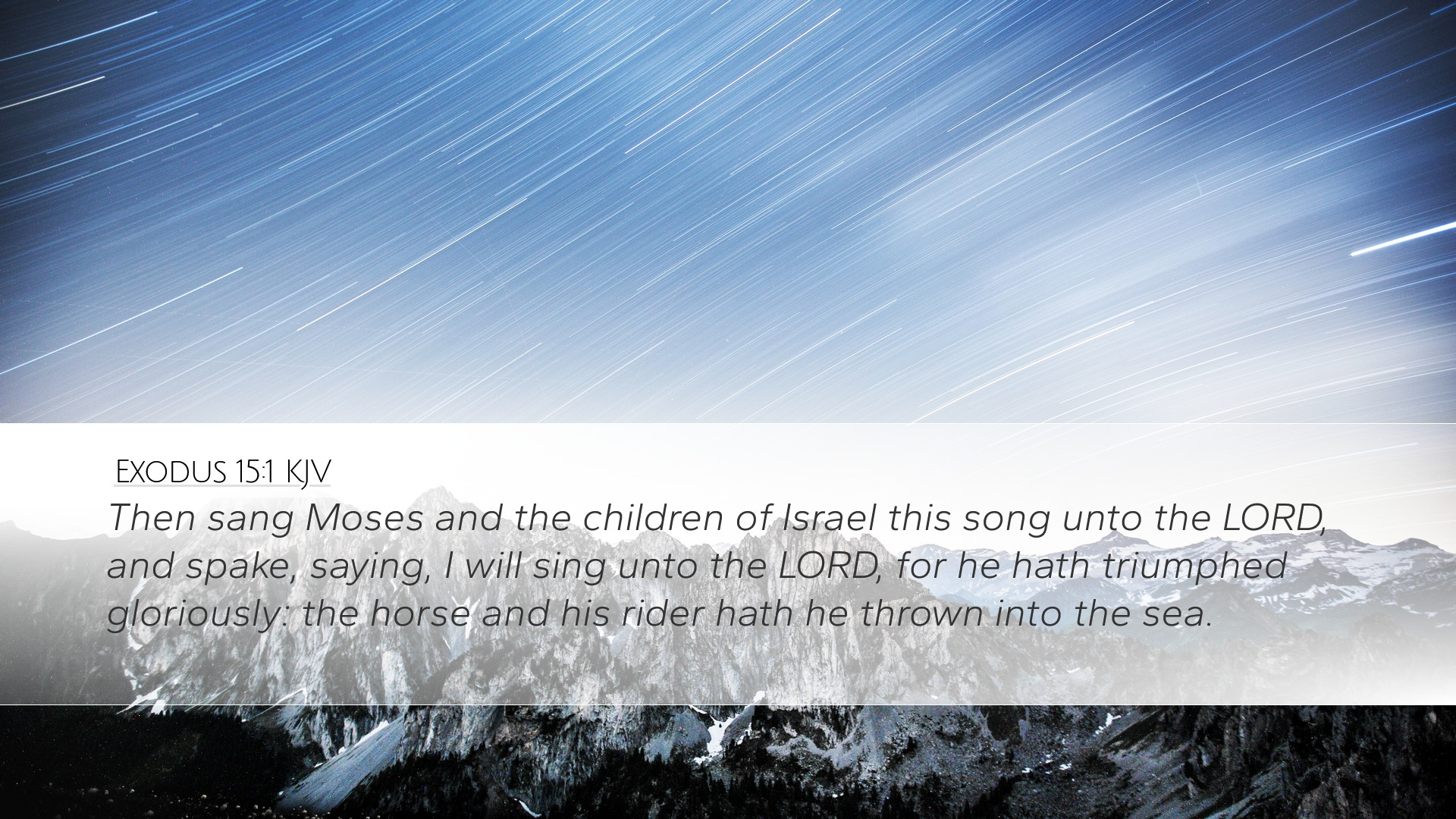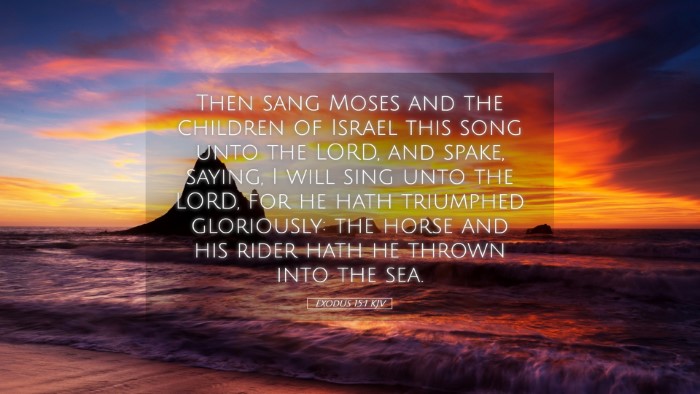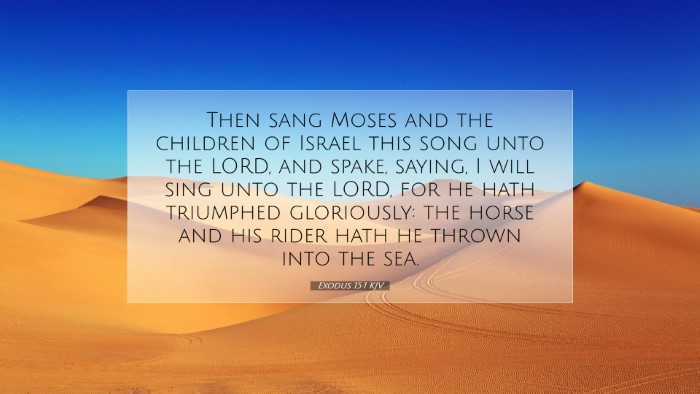Commentary on Exodus 15:1
Exodus 15:1 marks a significant moment in the narrative of Israel's deliverance from Egypt. This verse is part of the Song of Moses, a celebratory hymn sung after the miraculous crossing of the Red Sea. The Israelites, having experienced profound liberation, respond with a song of praise that articulates both their gratitude and recognition of God's mighty works.
Text of Exodus 15:1
"Then sang Moses and the children of Israel this song unto the LORD, and spake, saying, I will sing unto the LORD, for he hath triumphed gloriously: the horse and his rider hath he thrown into the sea."
Contextual Analysis
-
Historical Context:
The Israelite exodus is a pivotal event in biblical history, symbolizing God's deliverance and faithfulness. Understanding the situation leading up to this moment—slavery in Egypt, the plagues, and the parting of the Red Sea—enhances the significance of their song.
-
Cultural Context:
In ancient Israel, singing was a natural expression of joy and thanksgiving, often accompanying significant events. The Song of Moses serves as both worship and a declaration of faith, reinforcing community identity and collective memory.
Theological Insights
-
God's Triumph:
As noted by Matthew Henry, the declaration "he hath triumphed gloriously" highlights the ultimate victory of God over oppressors. This not only reflects His power but also assures believers of His sovereignty over their lives.
-
Response of Praise:
Albert Barnes emphasizes that singing is a natural response to God’s mercies. The act of praising God is not merely a ritual but a necessary expression of gratitude. This theme resonates throughout Scripture, where worship is intricately tied to remembrance of God's acts.
-
Victory Over Evil:
Adam Clarke draws attention to the phrase "the horse and his rider," which symbolizes the might of Pharaoh's army. The subsequent destruction of these forces serves as a metaphor for God's ultimate victory over all adversarial powers, assuring His people of their safety and freedom.
Structure and Literary Devices
The structure of this song displays a poetic form that is rich with imagery and parallelism, common in Hebrew poetry. The repetition of concepts and the use of stark contrasts (deliverance vs. destruction) underscore the profound transformation experienced by the Israelites.
Imagery and Symbolism
-
Water as a Symbol:
The sea represents chaos and danger, yet in this narrative, it is transformed into a path of deliverance for God's people. The drowning of the Egyptian army signifies the obliteration of oppression and a new beginning for Israel.
-
Collective Identity:
This song serves to unify the Israelites as they collectively reflect on their shared experience of salvation, fostering a strong communal identity rooted in divine intervention.
Application for Today
For pastors and theologians, Exodus 15:1 serves as a reminder of the power of praise in the context of community worship. In contemporary settings, it encourages believers to recount and celebrate God's faithfulness in their lives. The themes of gratitude, communal identity, and divine protection are timeless, relevant for any generation experiencing trials.
Practical Reflections:
-
Encouragement in Trials:
Believers are reminded through this hymn that even in the midst of trials, there is a reason to sing. The song invites reflection on past deliverances, fostering hope and resilience.
-
Community Worship:
This passage underscores the importance of congregational singing in worship services as a means of expressing collective gratitude and reinforcing faith among believers.
-
Spiritual Warfare:
The imagery of God triumphing over the horse and rider can be applied to contemporary spiritual struggles. It reassures believers that God fights on their behalf against spiritual adversaries.
Conclusion
Exodus 15:1 is not merely a historical recounting but a profound declaration of faith that resonates with all believers. The rich insights drawn from public domain commentaries illuminate its significance, urging contemporary readers to embrace a spirit of praise and remembrance, recognizing the ongoing victory of God in their lives.


